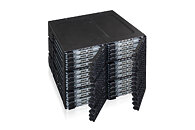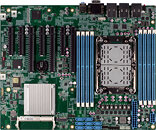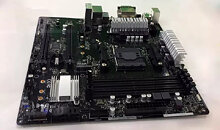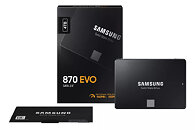
Microsoft DirectStorage API Available, but Without GPU-accelerated Decompression
Microsoft officially launched the DirectStorage API on the Windows PC platform, on Monday. The API enables direct data interactions between the GPU, graphics memory, and a storage device, so games have a more direct path to stream game assets to the graphics hardware. The API is compatible both with Windows 10 and Windows 11, although Microsoft is recommending the latter, for "in-built storage optimizations." Also, unlike previously reported, you don't necessarily need an NVMe-based storage device, such as an M.2 SSD with PCIe/NVMe interface. Even a SATA SSD with AHCI protocol will do. Microsoft is, however, recommending the use of an NVMe SSD for the best performance.
There is, however, a wrinkle. Microsoft isn't launching a killer feature of the DirectStorage API yet, which is GPU-accelerated asset decompression. This feature allowed GPUs to use compute shaders to decompress game assets that are stored in compressed asset libraries on the disk. Most games store their local assets this way, to conserve their disk footprint. Without this feature, unless there's special game code from the developer's end to utilize GPGPU for asset decompression; compressed game assets still have to rope in the CPU, and lengthen the pipeline. Microsoft stated that enabling GPU-accelerated decompression is "next on their roadmap."
There is, however, a wrinkle. Microsoft isn't launching a killer feature of the DirectStorage API yet, which is GPU-accelerated asset decompression. This feature allowed GPUs to use compute shaders to decompress game assets that are stored in compressed asset libraries on the disk. Most games store their local assets this way, to conserve their disk footprint. Without this feature, unless there's special game code from the developer's end to utilize GPGPU for asset decompression; compressed game assets still have to rope in the CPU, and lengthen the pipeline. Microsoft stated that enabling GPU-accelerated decompression is "next on their roadmap."

































































